Eric's Insight: Zheng He spirit glows in China-Malaysia exchanges
Malaysia is the first ASEAN founding member to forge diplomatic ties with China on May 31, 1974. As the two countries are ushering the 50th anniversary of bilateral relations, we’re reminded of Zheng He, a household name in Malaysia.
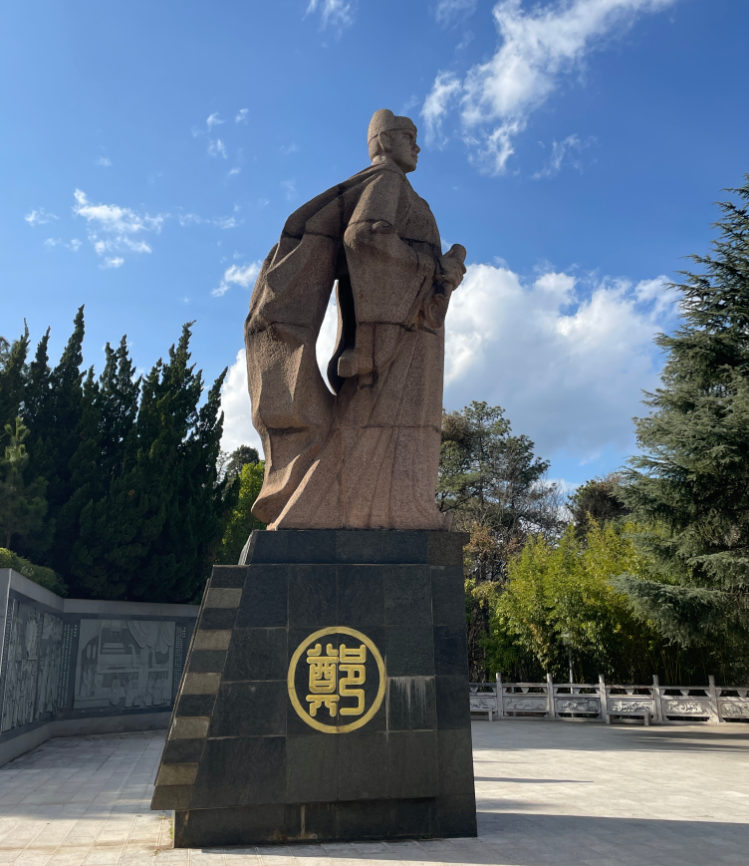
Statue of Zheng He stands at a park in central Yunnan’s Jinning district.
Zheng He (1371-1433), born in central Yunnan’s Jinning district, was a navigator and diplomat during the Ming Dynasty. In 1405, Zheng kicked off his seven voyages to the Western Ocean (today's Indian Ocean) from east China’s Jiangsu province. In the ensuing decades, Zheng He visited more than 30 countries and regions in South Asia, Southeast Asia and Africa, sowing the seeds of friendship between China and countries in these regions.
Zheng He stopped at the Malaysia port city of Malacca several times during his voyages to the Indian Ocean, leaving behind him countless stories and legends. Today, many Chinese Malaysians still believe that their ancestors came to the Malay archipelagos because of Zheng He’s voyages, giving rise to a sense of kinship towards folks in Yunnan and China at large.
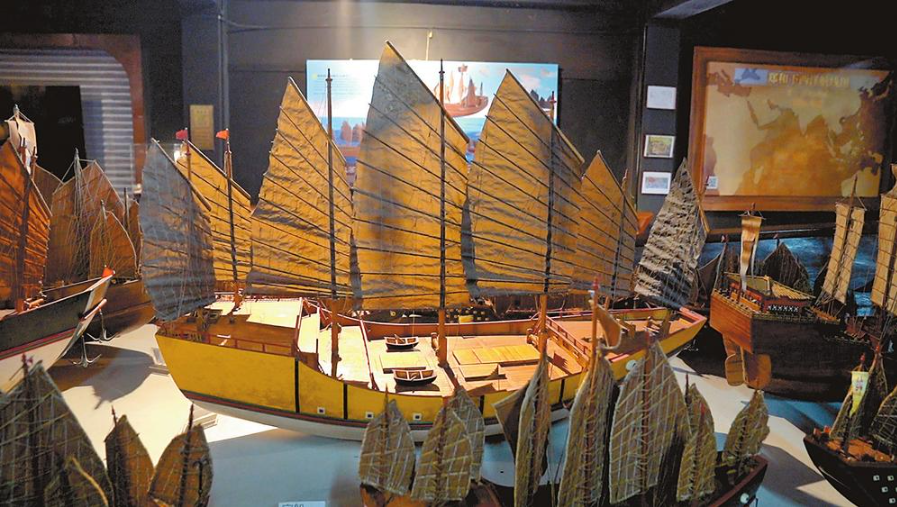
Modeled treasure ships used during Zheng He's voyages to the Indian Ocean
Actually, the name Zheng He is not only a symbol of China's ancient maritime glory, but also an eternal beacon of friendly exchanges and cooperation between China and Malaysia. "Zheng He is a household name in Malacca, and I learned about him in history books since childhood. He is the most outstanding navigator in the history of China, and he is also a messenger to promote exchanges and mutual learning of regional civilizations," said Muhammad Suhail Ahmad, co-author of the book Zheng He: Setting Example for Generations.
Zheng He's core spirit -- openness, tolerance, mutual benefit and peaceful development -- coincides with the guideline of the Belt and Road Initiative (BRI): wide consultation and joint contribution for shared benefits and win-win results. "Wherever Zheng He reached, he made friends with local people, bringing about friendship, prosperity and development. His diplomatic style with sincerity, tolerance and being future-oriented laid the foundation for China to propose the BRI," added Ahmad.
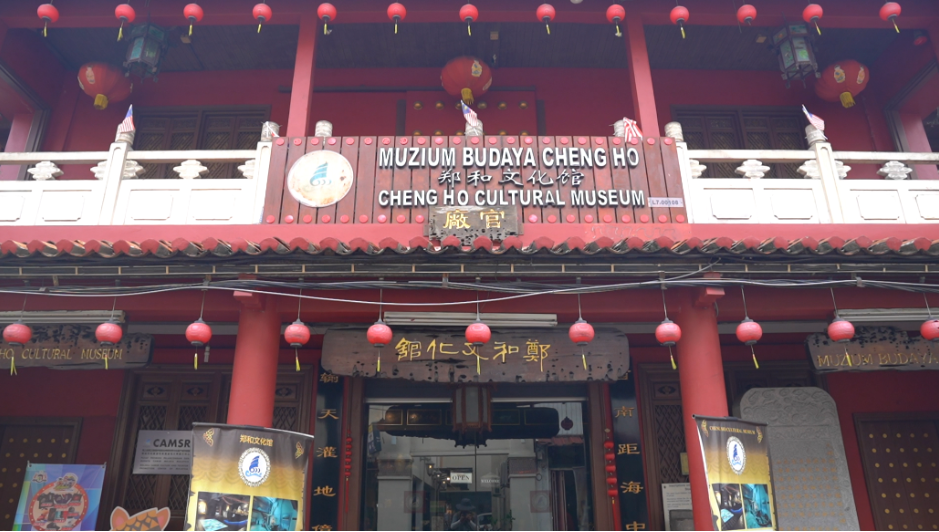
The Zheng He Cultural Museum based in Malacca
With the advent of the visa-free policy for tourists between China and Malaysia, the two countries have witnessed more mutual visits and cultural exchanges. Tourism practitioners and travel services of the two countries are expected to know more about each other's markets and design more customized products for different tourist groups. By increasing investment in tourism infrastructure and improving services in language and payment, travel businesses in the two countries will certainly thrive.
Ahmad is also working on programs for Malaysians to travel and study in China. "The TV play Meet Yourself is now popular in Malaysia, and I’m planning to visit west Yunnan’s Dali within this year." Ahmad believes that TV plays and literary works have made it possible for people in the two countries to better understand each other.
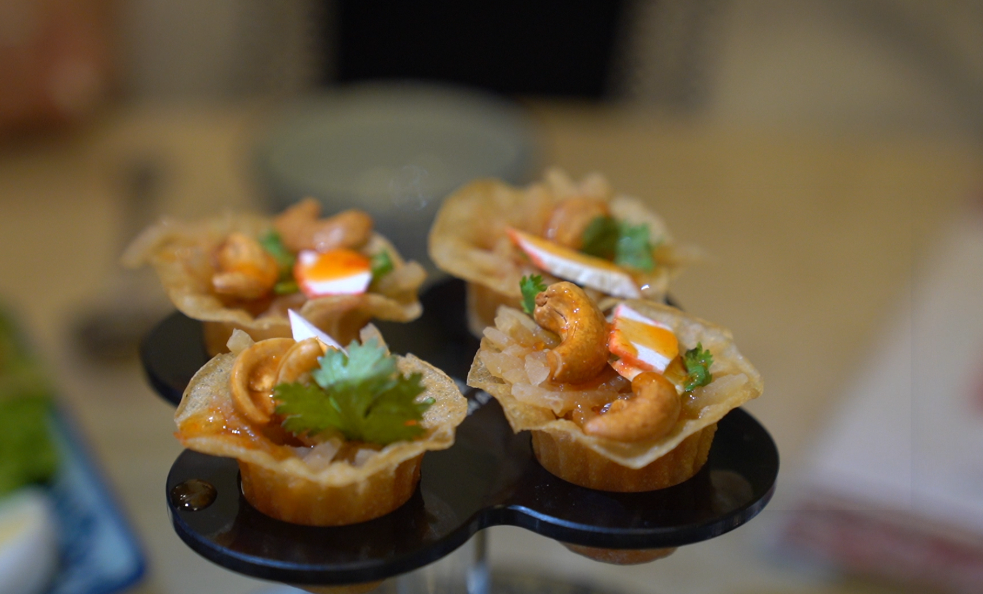
The Nyonya dishes are popular among Chinese tourists in Malaysia.
On the news web portal The Star, Malaysian Tan Hock Chuan shared traveling experience in Yunnan with family: “At the Kunming airport metro station, we bought the 72-hour ‘unlimited metro travel card’ for RM23, and it was so worth it.” At the Hani Rice Terraces in south Yunnan, Katherine Kuan said it was truly a sight to behold. “The colors slowly changed from white to different hues: yellow, blue, grey and gold. I was awestruck by the magical moment.”
Zheng He initiated the first wave of China-Malaysia commerce during his stays in Malacca, trading Chinese porcelains, tea and medicine for Malaysian food, fruit and other goods. Zheng also brought the Chinese ways of farming and production to the country, spreading the ideas of equality and friendship. Lim Sze Huat, general manager of the Zheng He Cultural Museum based in Malacca, has been interested in the Zheng He tools for rice milling, fishing and weaving, saying these traditional Chinese items have influenced the production and lifestyle in Malacca.
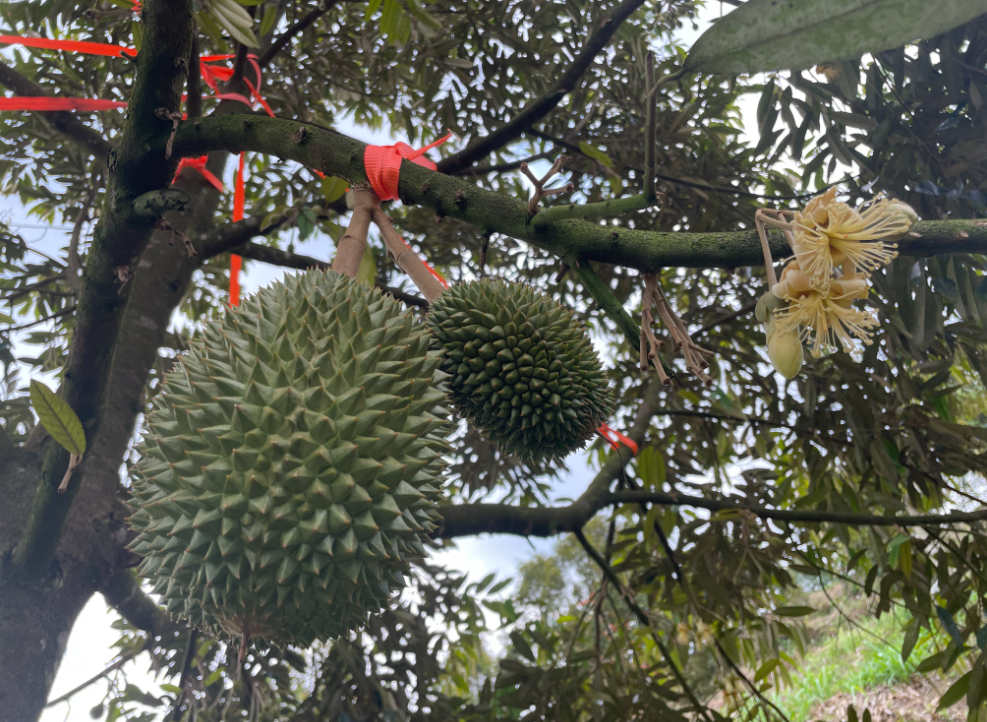
The durian variety Musang King is seen in a Malaysian orchard.
Now the Regional Comprehensive Economic Partnership (RCEP) is offering more opportunities for the two countries to contribute to regional openness and prosperity. The tariff barriers reduced by RCEP are being used to upgrade Chinese and Malaysian companies involved in car making, 5G technology and agro-processing, so as to jointly tap the third-party market across the globe. Malaysia is China's second largest trading partner within ASEAN. By optimizing customs clearance, reducing logistic cost and popularizing the certificates of origin, the China-Malaysia trade will keep on growing, and by embracing the Zheng He spirit of openness, tolerance and mutual benefit, the China-Malaysia ties look promising.
Writing by Wang Shixue and Wang Huan; Photos by Yunnan Daily; Proofreading by Zu Hongbing and Wang Huan